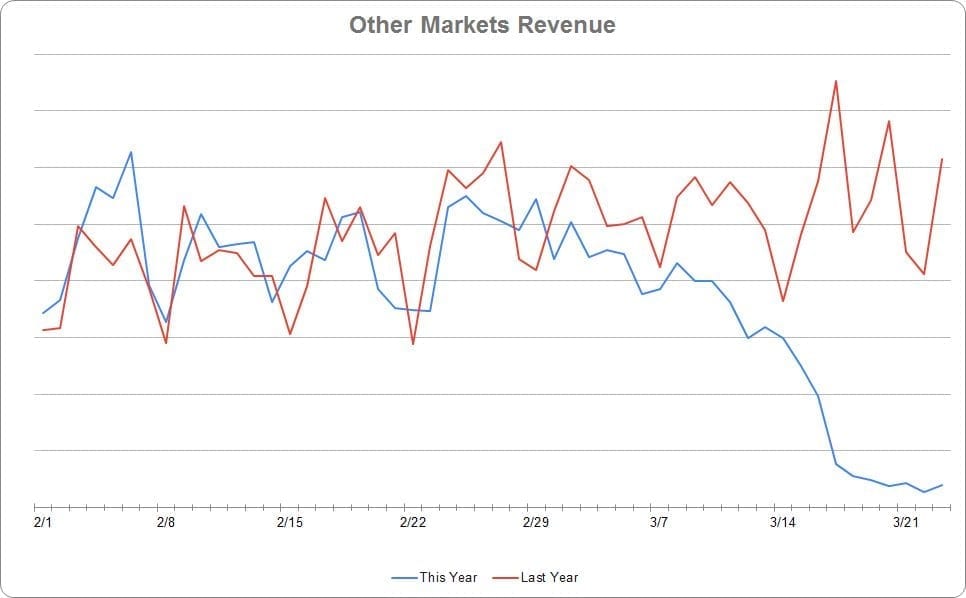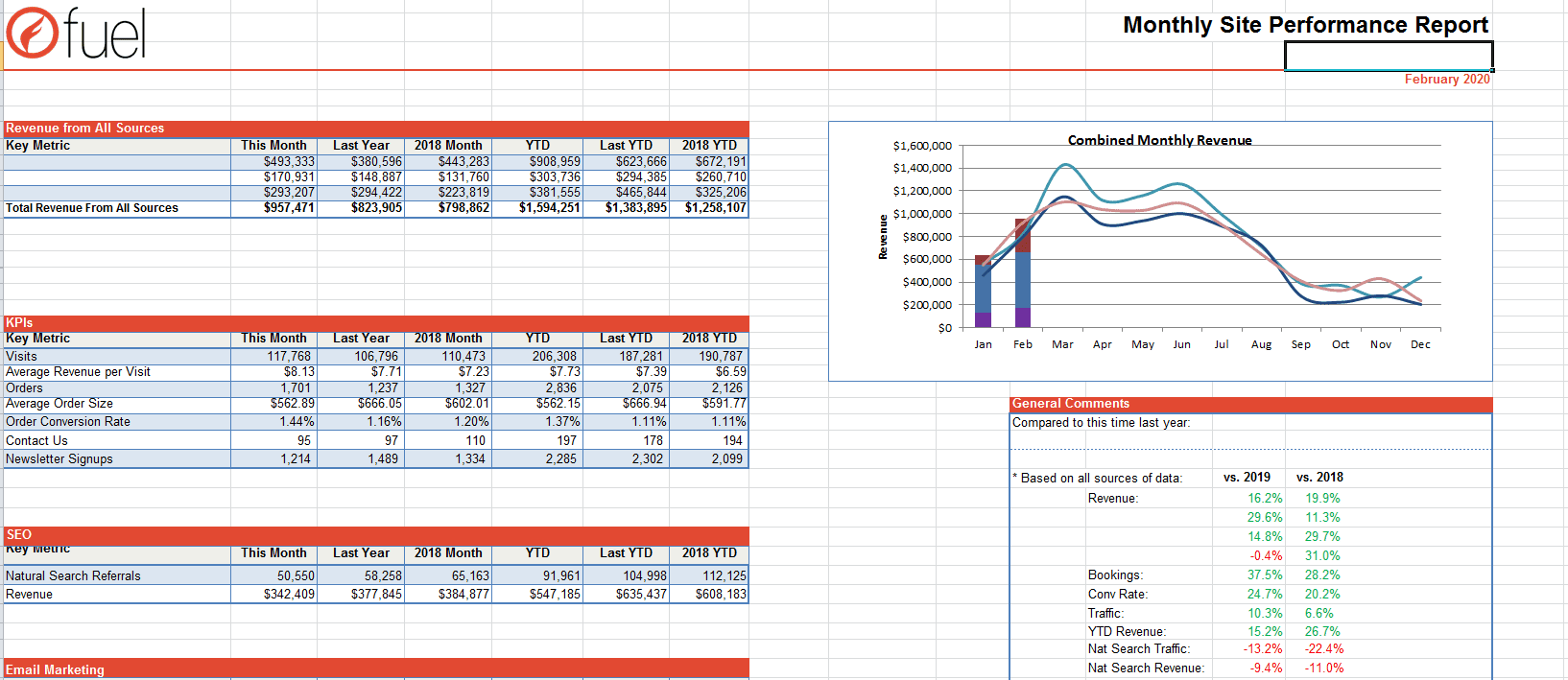What COVID-19 Means for Your Hotel Analytics Data
by Melissa Kavanagh
While we are in the heat of the COVID-19 crisis, it is important to take measures now to make the most of your analytics data. The tactics discussed here would apply to many other situations, although they might be less severe in nature, such as a hurricane, property renovations that cause your property to close (or partially close), an oil spill, other natural disasters, etc. We are going to address how to keep track of the events, the data you should be paying attention to NOW, and what to do with today’s data in a year from now.
Keep Track of Current Events
Google Analytics, Adobe Analytics, and Google Ads all have the capability to create annotations in their systems. I cannot emphasize how important creating documentation of important events in your analytics system can be over time. While everything is fresh in your mind, this is the time to take advantage of this feature. When you add an annotation, you will be able to see that note whenever you run a report that includes that date range, or from the entire list of annotations in the admin section.
Here are some critical dates to note as it pertains to this particular issue:
- 3/11/20 - WHO declared COVID-19 a pandemic
- The date of your state of emergency
- If you have specific fly/drive markets, note those states of emergency
- The date your area was affected by a government-enforced quarantine
- The date of government or owner shutdown of property
- Changes in marketing spend (PPC, social, meta) Changes in marketing strategies (started bidding on broad area keywords, changed spring promotions to summer)
- Any operational changes
- Changes to website content
- COVID alert added to site
- Restaurant featured on homepage
- Cancellation policy updated
- Featured no deposit necessary in booking engine or homepage
If you are not familiar with how to add annotations in Google Analytics, you can do this in two places:
- In any report, if the annotation is in the date range selected, click the downward arrow under the trended graph.
- On the right side directly under the graph, you will see the “Create new annotation” link.
- Select the correct date for your annotation, type in your description, and choose whether this should be a shared note (to anyone who has access to this view), or if it should be private (visible only to you). Click Save.


Don’t forget: annotations should be used for ANY type of changes happening on your website or in your marketing, regardless of a crisis.
What Data is Important Right Now?
Unfortunately, if you are in the situation of most hotels, you are not seeing much activity in the way of bookings and revenue. There is still important information that needs to be analyzed.
- Content
- For the visitors who are coming to your site, what are they consuming?
- Are you seeing an increase in traffic to the policy page, the FAQs, the contact page, or a specific page you’ve got dedicated to COVID-19?
- Does this data show that you are missing information on some pertinent pages?
- Do you have a webcam page that is getting traffic? This can be an opportunity for appropriate “we will be here when you are ready to travel” type messaging (see this post on tips for messaging).
- Room Searches
- If you are collecting data on the behavior in your booking engine, looking at the dates searched, dates booked and length of stay can be extremely helpful.
- Can you use some marketing tactics to get visitors to search for summer vacations now?
- Location
- From what geographic location are people visiting your website? Is it local traffic? Drive market? Fly market?
- Use this data to tailor your content appropriately
- Market Trends
- Reach out to your friendly competitors in your market or CVB and see how you are doing in comparison
- Use things like Google Trends and Vertical Trends Reports from Google
- One quick side-note:
- If you have a team of people working remotely that could be skewing data of your website traffic, you should probably exclude their IP addresses from your analytics.




What Do You Do With the Data Next Year?
At some point, this crisis is going to pass (make sure you annotate those dates, as well), and life will return to some semblance of normalcy. The problem is that your data from this year is anything but normal, so any year-to-year comparisons are basically useless. We would recommend using 2019 data as your comparison dataset.
We know that using 2 year old data is not ideal, but there is virtually no helpful data for this timeframe in 2020. Under these extreme conditions, we need to cut our losses, and do the best we can. We’ve had to contend with situations like this for clients that have been closed because of damages from hurricanes or partial closures for renovations. We create reports that do have both year-to-year and year vs. 2 years ago comparisons. 
Wrap Up
There is nothing simple about the situation we are contending with right now. The more you can do to make sure your data is well annotated and utilized in the best way possible now, the more likely you will be able to share your insights with your entire organization in a way that will help everyone get through this crisis.